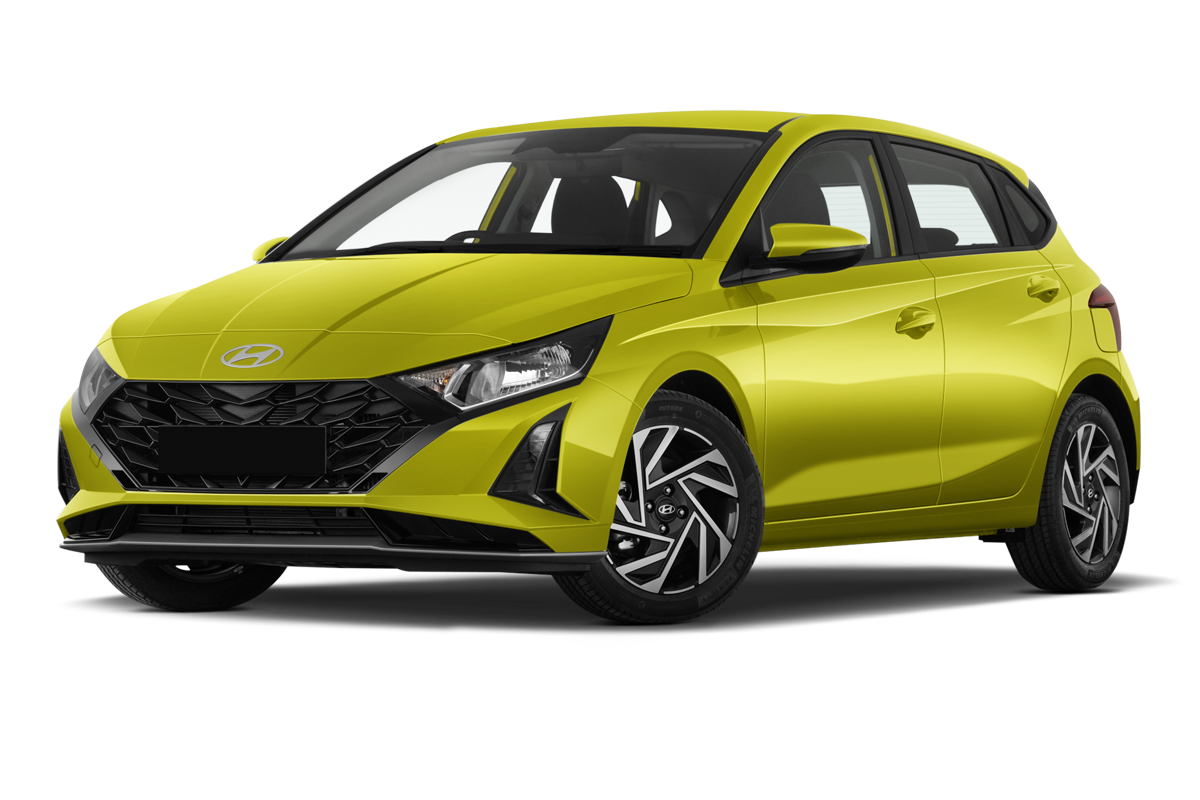The Greenest…
1.0T GDi Advance [Nav] 5dr

List Price
£21,870 - £26,530
Acceleration (0-62mph)
6.7 - 12.1 seconds
Top speed
112 - 142 mph
Engine Power
100 - 204 bhp
CO2 Emissions
120 - 158 g/km
Fuel Economy (Combined)
40.4 - 52.3 mpg
Good value for money; economical engines; good levels of equipment.
Uninspiring styling; firm suspension and uncomfortable seats make for a bumby ride.
The Hyundai i20’s level of equipment together with the solid, albeit unexciting, design and good fuel economy merit the label ‘very good value’ and if you are after a reliable small car without any frills or thrills this could be the one. It sits happily beside its main rivals in the super-mini bracket – the Fiesta, Corsa or Suzuki Swift for instance – and could best be described as a sensible buy.
Buyers of the Hyundai i20 will have the choice of four engines. They are a 1.2 and 1.4 litre petrol and a 1.1 and 1.4 CRDi diesel. The 1.4 litre petrol is the best all-rounder, although the diesel options are more economical; the 1.1 CRDi achieves a whopping 74 mpg on a combined cycle, although this is tempered by a 0-62 mph acceleration of a sluggish 15.7 seconds.
The Hyundai i20’s handling certainly won’t knock your socks off, but the car drives well enough. It’s quiet – wind and road noise are never a problem, which is definitely in its favour on motorways. The suspension is firm and the seats are not exactly squashy; numb bums could be the order of the day on a long journey. The i20 is not particularly prone to body roll and grip is good. It makes quite a nippy little town car, but probably not so good for a lot of long distance driving, especially with restless small people in the back.
If you want to blend in with the crowd this may be the car for you. Its looks are not remarkable in any way whatsoever. The Hyundai i20 is smart enough, and not without style – it’s just not exciting enough to raise your heart rate by even 1 bpm.
The Hyundai i20 has clearly labelled and well-organised control buttons on the dash, which are a welcome feature, along with an easily adjustable driver’s seat and steering column. Interior plastics could be better, particularly the gear lever in the lower spec models which feels rough to the touch. The 295 litre stowage in the boot extends to a very generous 1060 litres with the 60/40 rear seats folded down – it can be a bit of a tussle to fold them down though. Additional storage can be found in the front, with a cooled glove box, twin cup holders and a cubby hole on the front. There’s a good amount of head and legroom for four adults to sit comfortably, but three in the back may find it a bit of a squash, unless they all get on really well together!
The i20 comes in three trim levels from the entry level Classic, to the Active and the top of the range Style. As standard, all models are equipped with electric front windows, air conditioning, remote central locking, six airbags and CD stereo with MPS player socket. If you decide to upgrade to the Active, added to the mix you will get electric rear windows, alloys, iPod connection, and steering wheel mounted audio controls. Finally, the Style adds the luxury of half-leather seats, leather steering wheel, front fog lights and climate control.
A five star awardee in the European NCAP rating, the Hyundai i20 comes with good safety credentials. All models have active head restraints and six airbags and ESP stability control. Isofix child seat mountings are fitted in the rear.
A huge plus for owners of the i20 is Hyundai?s five- year, unlimited mileage warranty and the support given by its wide ranging network of dealers. It is very reasonably priced and should be easy to sell on when the time comes. Fuel economy across the range is good, and the diesel engine, particularly, is cheap to tax. For someone who has to consider their wallet, the i20 may be the answer.
Reviewed by cars2buy